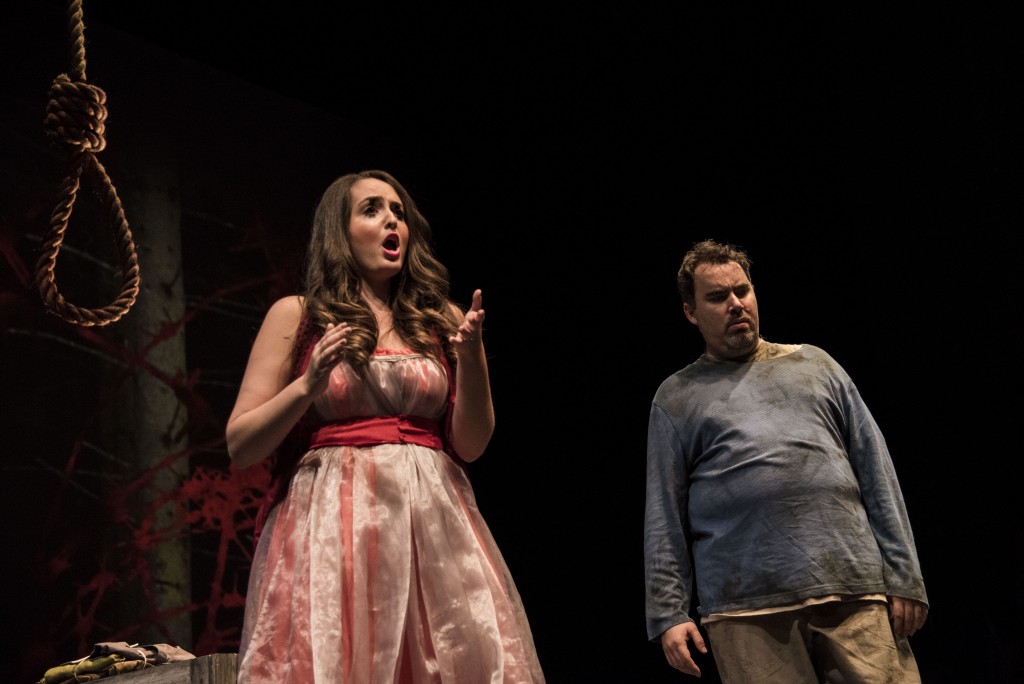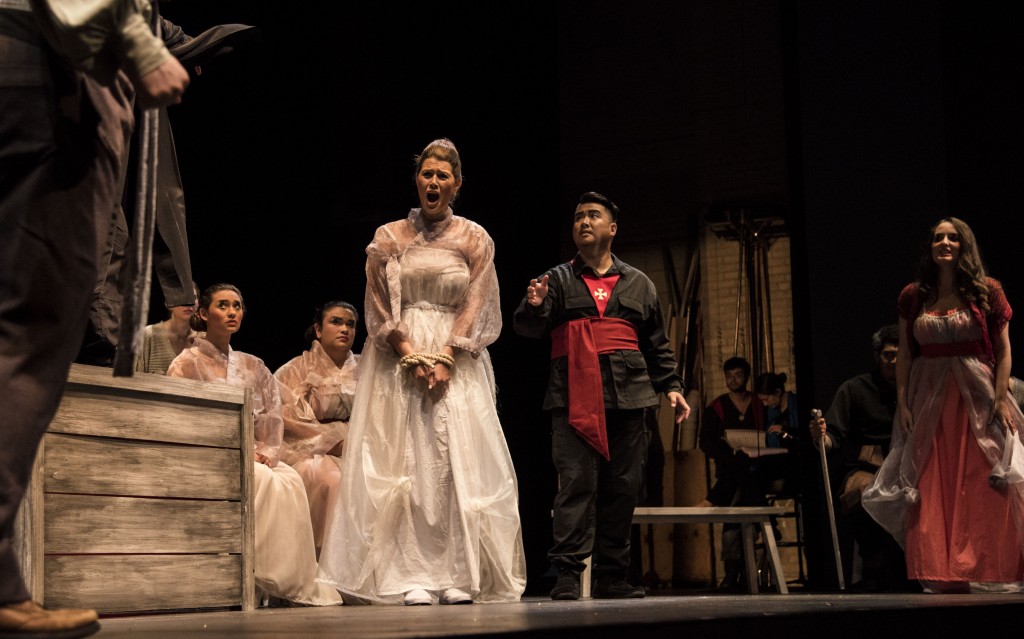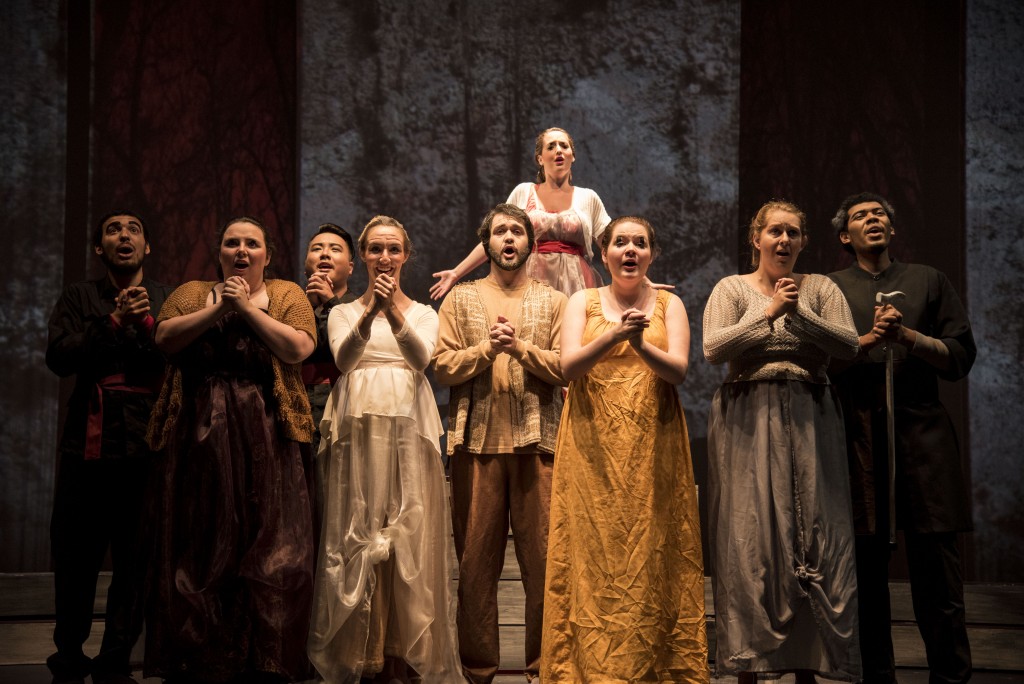
That work was his 1961 opera, The Crucible, based on the Arthur Miller play of the same name that allegorized the McCarthy “witch hunts” of the 1950s through the medium of the actual hunts that befell colonial Salem in 1692. The work came along only a few years after the Wisconsin senator had been discredited, undoubtedly fueling some extra interest in the opera, which took the Pulitzer Prize for music in 1962. It’s had a respectable life in opera houses and university music programs, and a couple years back the Sarasota Opera House presented it as part of its American Classics series.
The Crucible works very well in the theater, in part because of the strong influence of Giacomo Puccini. The Italian composer’s melodic style is not present, but Ward has followed in the master’s footsteps in crucial ways: The taut drama in four relatively short acts; a canny use of recurring motifs; and overall, a similarity in compositional architecture in which the texture is relatively busy, arias come and go with rapidity, and the emotion is febrile and highly colored. The music is also unashamedly tonal, in the manner of contemporaries such as Gian-Carlo Menotti or Carlisle Floyd.
The Miami Music Festival version, featuring students in the festival’s opera and orchestral institutes, was set in a dystopian post-apocalytpic Salem, with vaguely menacing red and black colors and officials dressed in modified Mao jackets with long sashes and prominent badges. Presented Saturday night at the Broad Auditorium on the campus of Barry University in Miami Shores, this mounting of the opera was exciting, compelling and enjoyable.
It did, however, suffer from one major problem: With the exception of Cory McGee, who was a good Simone in Gianni Schicchi and a good Rev. John Hale here, the male voices were weak, either in sheer sound volume or in tone and timbre. McGee offered a powerful, sonorous baritone to his intense portrayal of Hale, who is torn between duty and his empathy for humanity.
Much less good were Anthony Zoeller as John Proctor and Daniel Noone as Danforth. Although these two singers had stamina and presence, their vocal quality left much to be desired. In Zoeller’s case, his voice was often harsh, grating and strained, though it got noticeably better in Act IV, when it had warmed and had an appealing roundness. Noone’s voice was strong and clear and easy to understand, but also quite narrow in a part that calls for the singer to have a domineering sound.
The other men – Gabriel Pang as Rev. Parris, Nicolas Wagner as Giles Corey, Ian Silverman as Cheever (amusingly renamed John instead of Ezekiel in the supertitles), Robert Nunez as Thomas Putnam – were no match for the orchestra, and while they were working hard and acting forcefully, their singing was not up to the demands of the writing.

Karpov made an excellent Abigail, at once sensual and bratty, and she sang with a large, luminous soprano. She was a most effective femme fatale, making John Proctor’s dilemma persuasive. As Goody Nurse, Belon also was excellent, and she has a color and character to her singing that is distinctive and memorable.
Greene, too, has a big voice with an intense quality that made her very effective in the Act III courtroom scene. And MacIntosh was effective in Act I as mother on the edge, with a daughter stricken by the Devil. Myka Murphy had a pleasant voice as Tituba, particularly in the beginning of the fourth act, but it was perhaps too lightweight for the part. Also, the female chorus members did good work in the courtroom act as the fellow hysterics.
Bradley Moore was the very able conductor, with a large and powerful orchestra that did admirably well on behalf of Ward’s score. This has been quite a festival for these young people, who have had a great deal of challenging and important repertoire to get through in a short time. David Carl Toulson made good use of body placement in showing the distance between Abigail and John, even as she moved closer to him, taking off clothes; you got the sense that this was a man who had moved on.

The closing opera of last year’s Miami Music Festival, Mozart’s Don Giovanni as reimagined in the guise of a contemporary financier, had markedly better male voices than Crucible, Schicchi or L’Enfant et les Sortilèges this year, and one wonders why the quality of these singers was not up to the standard of the year before. It may have just been the luck of the draw, but future festivals will need stronger male casts to make these productions successful.